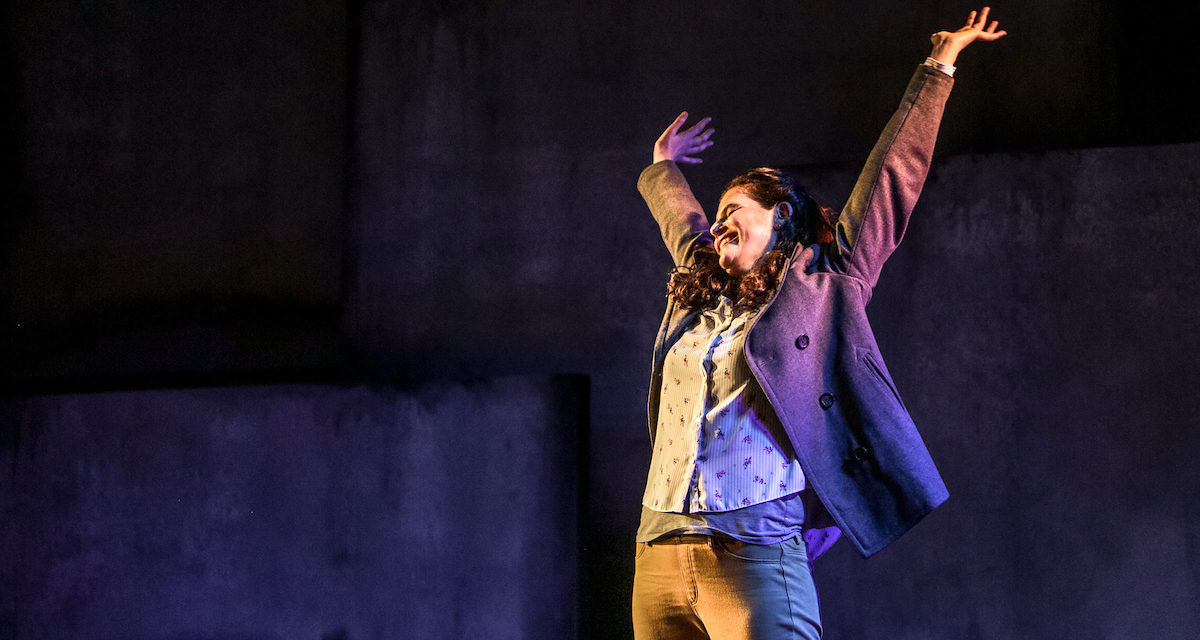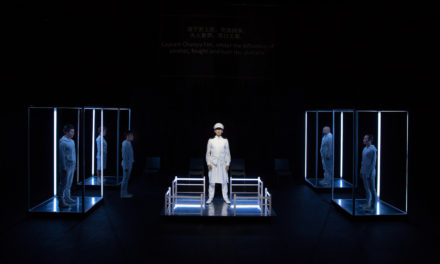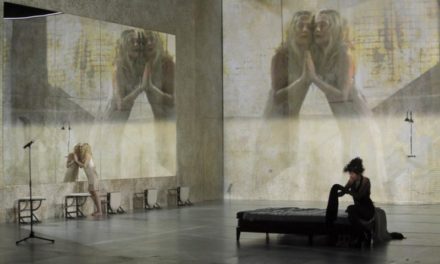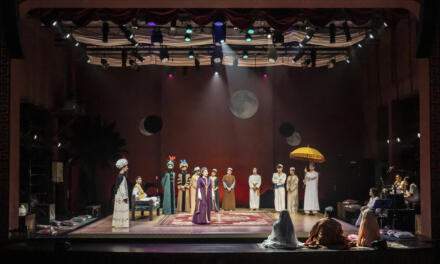Saturday night at Longy School of Music’s Pickman Hall, As One had its Boston Premiere in the skilled hands of Boston Opera Collaborative. As One, an insightful, 80-minute journey based on the life of a real transgender woman, will likely continue being produced by similar companies not only because of its topical nature, but because it requires minimal production values; only two singers, a string quartet, and projections.
The audience never knows Hannah’s childhood name. The characters are simply “Hannah Before” and “Hannah After.” Instead of a split show, with the baritone singing the first half and the mezzo soprano the second, they were onstage together much of the time both contributing to reflections on identity. Many interesting things happen as commentary in having the two onstage representing the old and the new person residing together. Those expecting a plot-driven opera will find that this is much more a series of vignettes, exploring aspects of a transgender experience. Boston Opera Collective has lessened the scale of their productions in the past few seasons in favor of a more intimate audience experience and more concise production. However, the first half’s libretto runs the risk of becoming cliché memoir was the existence of music not adding another level of energy.
The music throughout was mostly appealing with a lot of driving ostinato as we figuratively drive through the protagonist’s experiences, on a bike on her childhood paper route and across a bridge that separates the two cities where she lives and houses two different identities, as she is transitioning from male to female. Some of the vocal lines were unnecessarily stilted though, and the roles themselves took a lot of stamina as neither character ever steps off stage. The string quartet, led by Andrew Altenbach, was strong and a cohesive voice throughout. The composition even required that a few members of the ensemble sing Christmas carols over their own playing as Hannah, too afraid to go home for the holidays, writes to her family to send pained regrets. Stage Direction by Greg Smucker was clear and imaginative within the framework of the libretto.
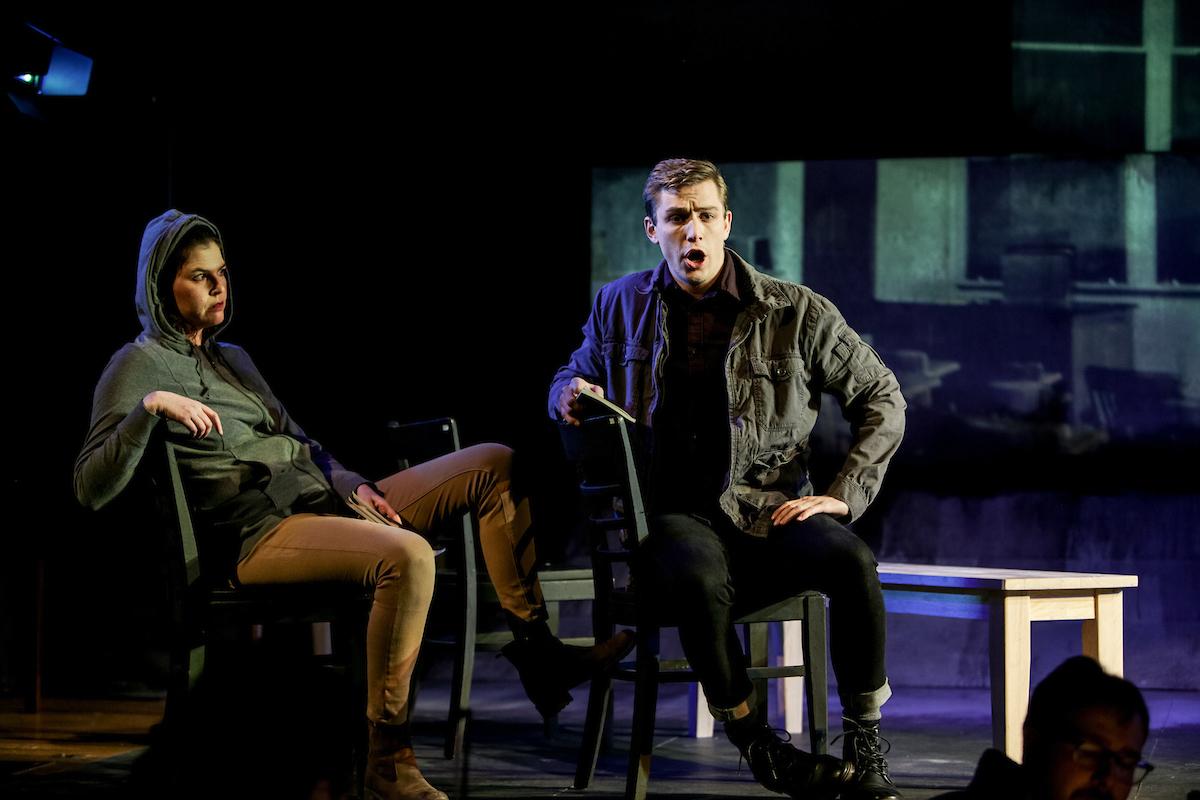
Photo Credit: Dan Busler
The cast was the absolute standout. Scott Ballantine was especially vocally riveting in his upper register, which was on display quite often in this piece. His presentation of the character avoided stereotypes and was direct and effective even in sections when his counterpart was singing, when he was supporting with only facial expression and gesture. Rebecca Krouner handled the significant extremes of the role’s vocal range with aplomb and with a beautiful vocal sheen and dramatic pathos.
Particularly poignant and pressing was the listing of very recent murders of real transgender individuals during and after the opera’s attack scene. This list comes in the form of the protagonist’s own research on transgender violence after a harrowing attack. The scene ends with both characters singing repeats in unison, which becomes a kind of effigy for the slain.
In the opera’s final scene, titled Norway, Hannah travels after her assault, staying in a cottage and attempting to recover by communing with the wilderness around her. She realizes that the questions she asks of the land go unanswered because “nature doesn’t work in metaphor.” After more serious ruminations, the orchestral texture fell away in this moment. Though a bit ironic for a piece which relies on the use of metaphor throughout, the way this was set sparingly in the music made this realization an intentionally effective punchline. The two characters/one character finally do literally sing as one after a series of revelations toward feeling free. The baritone sings in the same octave as the mezzo in falsetto on the final line, “As One.” The opera was a reminder of the power of one human story and the high level of talent and passion pouring out of Boston’s young classical scene.
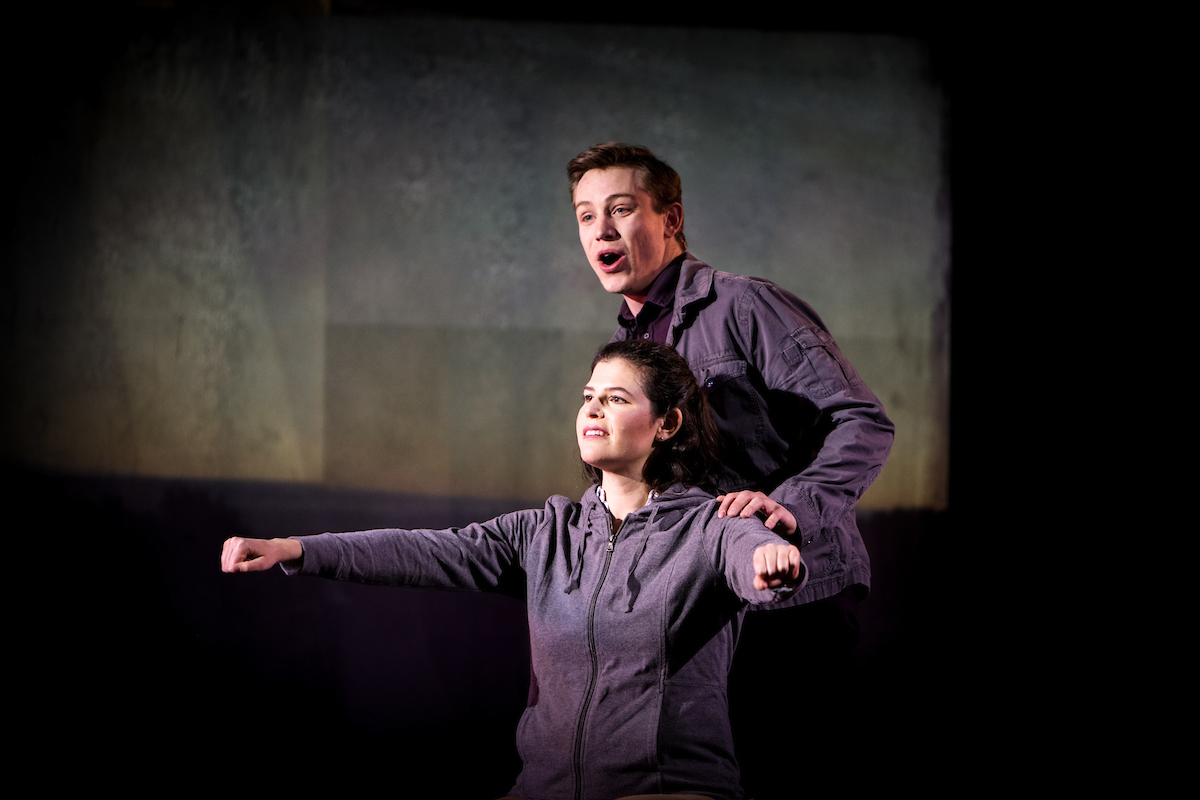
Photo Credit: Dan Busler
This post was written by the author in their personal capacity.The opinions expressed in this article are the author’s own and do not reflect the view of The Theatre Times, their staff or collaborators.
This post was written by Katrina Holden-Buckley.
The views expressed here belong to the author and do not necessarily reflect our views and opinions.

